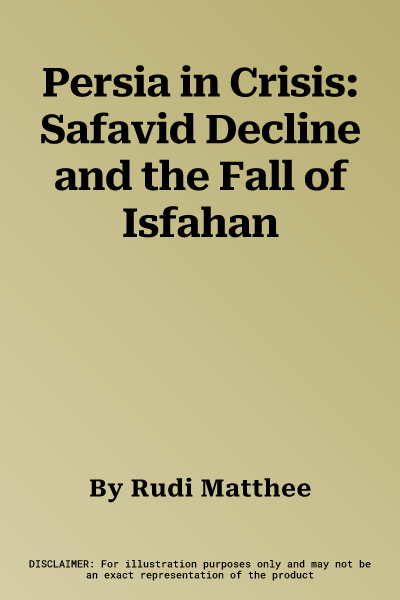I.B.Tauris in association with the Iran Heritage Foundation
The decline and fall of Safavid Iran is traditionally seen as the
natural outcome of the unrelieved political stagnation and moral
degeneration which characterised late Safavid Iran. Persia in Crisis
challenges this view. In this ground-breaking new book, Rudi Matthee
revisits traditional sources and introduces new ones to take a fresh
look at Safavid Iran in the century preceding the fall of Isfahan in
1722, which brought down the dynasty and ushered in a long period of
turbulence in Iranian history. Inherently vulnerable because of the
country's physical environment, its tribal makeup and a small economic
base, the Safavid state was fatally weakened over the course of the
seventeenth century. Matthee views Safavid Iran as a network of
precarious alliances subject to perpetual negotiation and the society
they ruled as an uneasy balance between conflicting forces. In the later
seventeenth century this delicate balance shifted from cohesion to
fragmentation.
An increasingly detached, palace-bound shah; a weakening link between
the capital and the outlying provinces; the regime's neglect of the
military and its shortsighted monetary policies combined to exacerbate
rather than redress existing problems, leaving the country with a ruler
too feeble to hold factionalism and corruption in check and a military
unable to defend its borders against outside attack by Ottomans and
Afghans. The scene was set for the Crisis of 1722. This book makes a
major contribution to our understanding of Iranian history and the
period that led to two hundred years of decline and eclipse for Iran.

